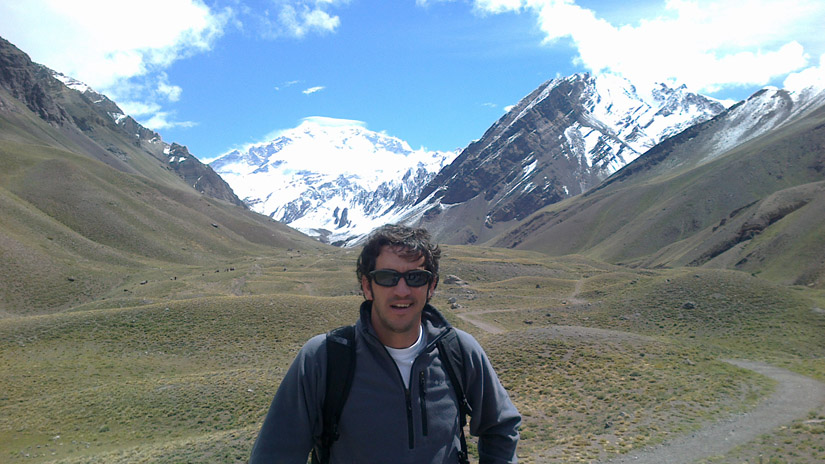Joseba Etxarri. Descendant of Basque who emigrated to the city and province of Mendoza more than a century ago, our interviewee belongs to a large family saga, the Salvarredi, that continues working in agriculture, as did don Severiano, his great grandfather, who came from Berastegi to Mendoza, a place whose names reminds the old town of Mendoza in the plains of Araba, just six or seven miles from Vitoria-Gasteiz..
-The Argentinean city and area of Mendoza is internationally known for its wines.
-Our economics is based on the vine. We are farmers, winemakers. Mendoza has some very old and important companies in this field, some, like Goyenechea, of Basque origin. But in fact, during the last 13 years, after the corralito, a big change took place. There was a lot of capital that came from abroad that made very important purchases and investments, sometimes with an amount that was insignificant for them, but very significant here. Among many, it comes to mind Belasco de Baquedano, which if I’m not mistaken is a company linked to La Navarra pacharan.
-You are a civil engineer but you dedícate time to your family business, wine and grapes.
-Half of our production is dedicated to making wine on a cooperative basis. We produce cabernet sauvignon, syrah and pedro ximenez grapes as well as aspirant bouchet. We sell wine in bulk and the cooperative allows us to be more competitive. The other half is dedicated to different varieties of table grapes, that we sell under the family brand ‘Atxona,” a familiar Basque word for grandpa. We used to export to Bilbao but since 2010, we sell all of our production to Brazil.
-You were a dantzari and are a member of Denak Bat, the Basque club in Mendoza.
-Always. I was the secretary on the last board of directors and they elected me as vice-president in the last elections with Alicia Aguirre as president. In any case, with a title or not, one always works with the same energy. The club is an extension of our house and I feel happy and very fortunate to be able to contribute my grain of sand.
-Some years ago the Basque club supported an exchange program between farmers and wine-growers in Araba, in the Basque Country, and Mendoza.
-That was in 2007. Twenty-five young farmers came from Lantziego in the Rioja Alavesa and they spent two weeks with us, getting to know how we work and our reality, and vice versa. Each one stayed here in a farmer's house and later we travel there and did the same. We saw the dramatic differences in relation to processes, quality, added value…. What most caught my attention was that here, a family, is able to make a living, on 20 hectares, while there, they can be just as successful on five.
-You have been to the Basque Country three times.
-In 2006 I was part of a youth commission in FEVA, the federation of Basque clubs in Argentina, and I traveled to participate in a youth conference in Bilbao. That one was the most amazing trip, in relation to feelings. I met my 'Salvarredi cousins' and I visited the houses in Berastegi and Zegama my great grandparents left to come to Argentina. I was extremely excited to visit the hermitage of San Lorenzo where there is a bell forged by my great-great grandfather which bears his name. Ringing it on August 10th, San Lorenzo day was an indescribable experience for me.
-And four years ago you toured Euskal Herria on a bike.
-I like cycling and hard tourism-cycling a lot. I have great memories. In fact I am now preparing another tour, bigger, probably for next summer that will start in either Bilbao or Donostia, cross Iparralde, to return to the south of Navarre to visit the most varied places of Euskal Herria.
-What does the word crisis mean to you?
-In Argentina we are used to economic ups and downs and instability. If you are talking about the crisis in Europe, I can’t tell you a lot. Many people have written from Euskadi though, to the Basque club, asking if there are job opportunities, even though none have come so far. We always welcome Basques that are passing through. At the end of October, for example, we will welcome a large group from Iparralde. “Gure etxea zure etxea da” (my home is your home) as the old saying goes.






 Send to a friend
Send to a friend Add comment
Add comment








